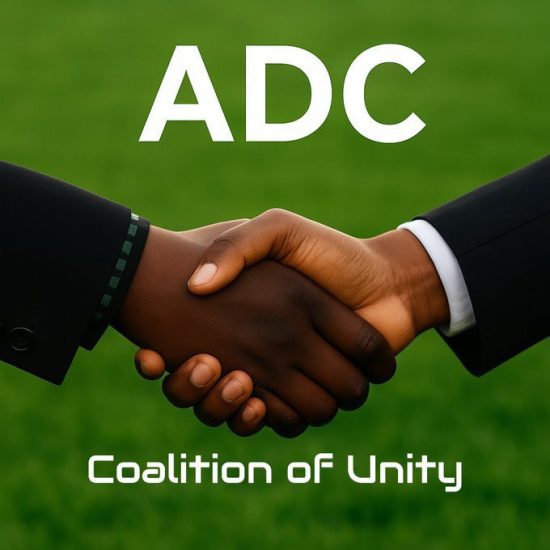At the heart of any successful political coalition lies a robust understanding of party strength, often demonstrated through recent electoral results. In political discourse, party strength encompasses factors such as voter loyalty, geographic spread, and the capacity to mobilize resources. When parties form coalitions, it is typically to amplify their collective influence and increase their chances of electoral success. This is especially relevant in a diverse and populous country like Nigeria, where regional and ethnic dynamics strongly shape political loyalties.
By Abdul-Azeez Suleiman
Coalitions have become an important feature of Nigerian politics, enabling parties to navigate the challenges of governance and electoral competition. The African Democratic Congress’s (ADC) recent attempt to rally opposition against President Bola Ahmed Tinubu offers an instructive case in coalition politics. Unlike successful coalitions, which often emerge from a foundation of demonstrated strength, the ADC’s initiative highlights the complexities of forming alliances without the necessary ingredients for success.
The ADC’s move appears driven more by urgency than by a shared strategic vision. While the party has carved out a presence in Nigerian politics, it has struggled to secure widespread electoral support. Recent election results have cast doubt on its appeal and capacity to win over a broad electorate. This lack of electoral weight undermines the party’s bargaining position and complicates efforts to attract credible partners. By contrast, effective coalitions typically form around parties with a track record of electoral success, inspiring confidence among allies.
Coalitions are not merely about joining forces—they require alignment of values, goals, and strategic intent. Successful coalitions are built on a shared vision that goes beyond individual party interests. This unified purpose is critical in building trust internally and crafting a compelling message for the electorate. The coalition that brought President Tinubu to power, for instance, was rooted in common objectives, with each party contributing its own strength. Their combined electoral record provided a solid foundation for cooperation.
In contrast, the ADC’s alliance lacks such cohesion. Without a clear, unified message, the coalition presents a fragmented front that may fail to connect with voters. Political coalitions gain traction when they present a coherent narrative that speaks to citizens’ hopes and challenges. Without such a vision, the ADC’s effort risks being perceived as merely oppositional rather than transformative.
Equally important is the capacity to mobilize resources and grassroots support. Effective coalitions leverage their collective infrastructure to build robust campaign machinery. In a country as politically complex as Nigeria, engaging diverse voter blocs requires significant organizational strength. The ADC and its allies appear to lack the logistical and financial muscle to mount a serious challenge, further limiting their appeal.
The failure of the ADC alliance serves as a cautionary example for other parties considering coalition-building. It underscores the importance of party strength, a shared agenda, and strategic clarity. In an era of increasing political fragmentation, these lessons are critical for forming coalitions that can truly compete.
In conclusion, the contrasting outcomes of the ADC alliance and successful political coalitions in Nigeria reveal the vital links between electoral strength, strategic unity, and effective political partnerships. While the ADC’s effort reflects a hunger for change, it also illustrates the dangers of forming alliances without the pillars necessary for success. As Nigeria continues to evolve politically, the key to building enduring and impactful coalitions lies not only in shared opposition but in clear vision, proven strength, and a common commitment to meaningful national transformation.


